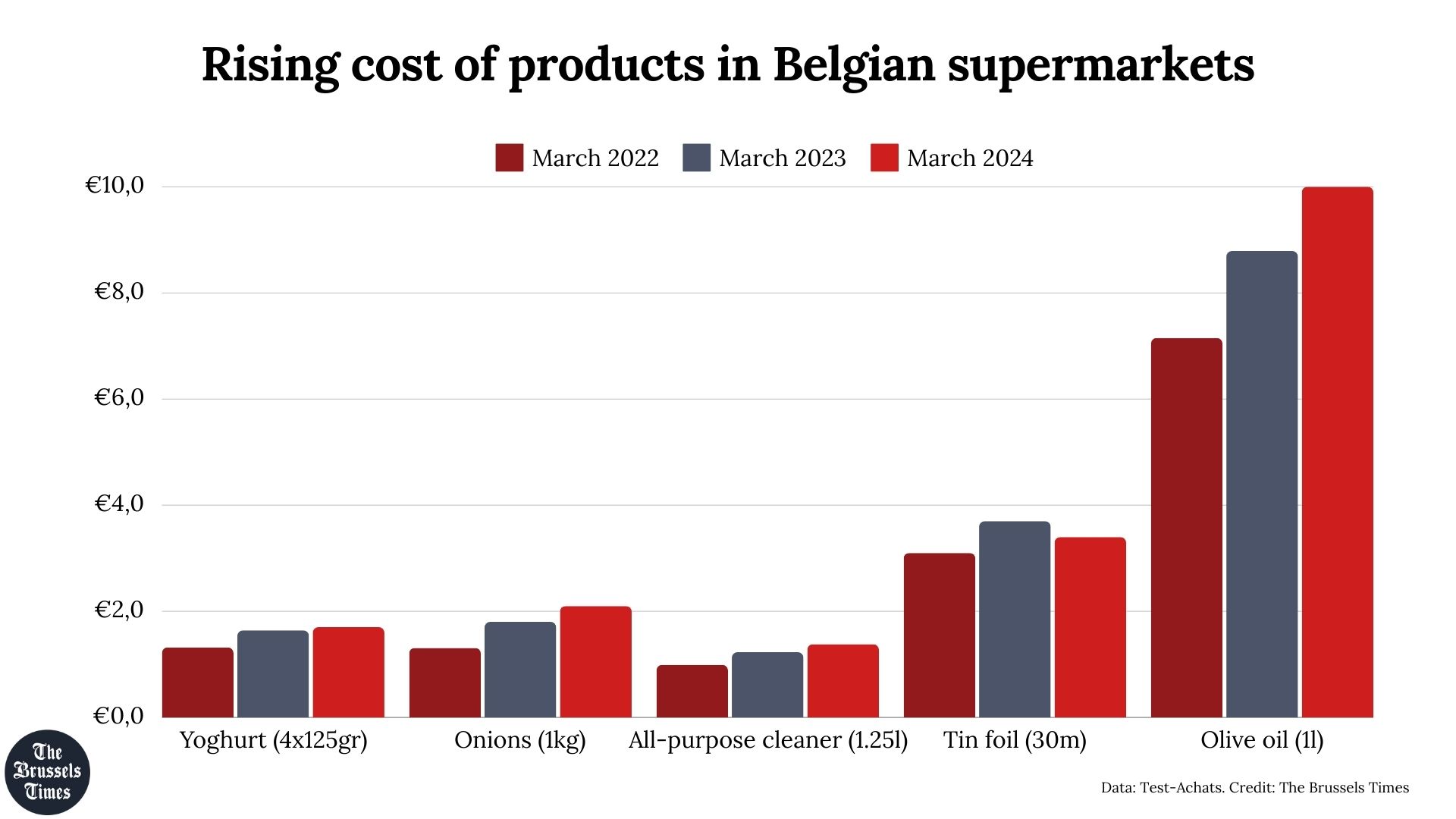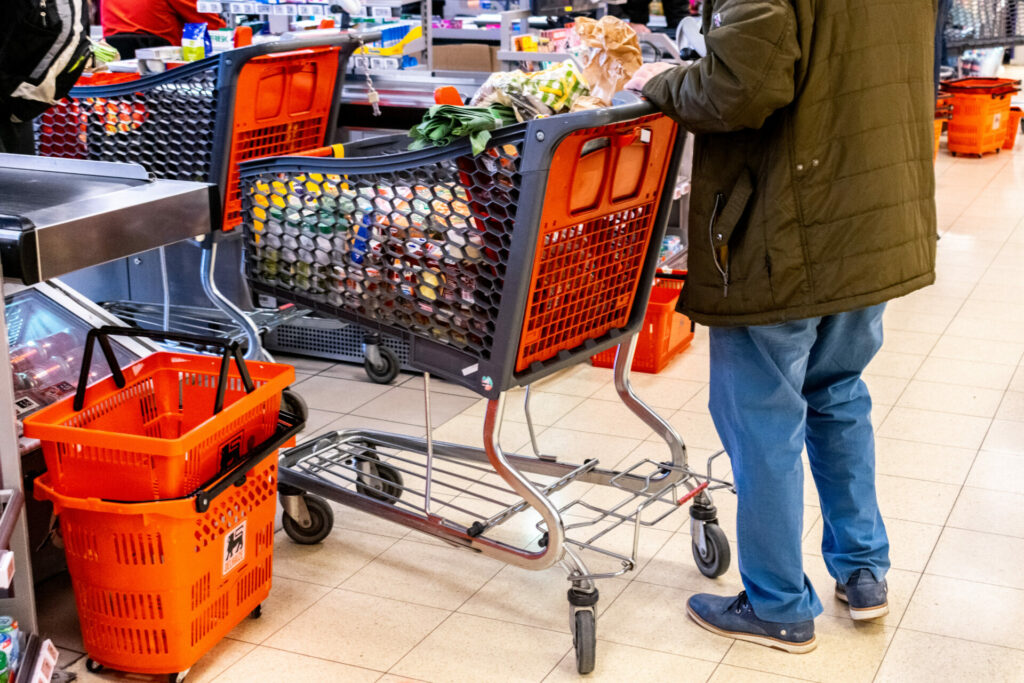The inflation seen in Belgian supermarkets is levelling out, bringing the chance of long-anticipated stability, a recent analysis of grocery prices has shown. But many products remain significantly more expensive than two years ago.
It has been a year since supermarket inflation reached its historic peak of 20.62% after months of supply chain disruptions and soaring production costs made an average grocery shop substantially more expensive. Test Achats has since observed a drop in prices every month and now the consumer rights organisation confirms that inflation in March 2024 was 2.73% – the lowest in two years.
"The huge price increases in the supermarket seem to be gradually moving behind us," spokesperson Ortwin Huysmans noted. The inflation rate is based on a calculation of the prices of more than 3,000 products every month in seven supermarket chains in the country. While prices have risen dramatically in two years, for many products they have stabilised in the past year or even dropped slightly.
For example, the price of bread is down by 2.7% since last year, semi-skimmed milk costs 3.5% less, and cling film and aluminium foil are even 7% cheaper than last year.
The Ministry of Economy confirmed last week that inflation for food products in March was 3.21% – down from 4.65% in February. The main price increases were for fruit, chocolate and confectionery; decreases were recorded for alcoholic beverages and vegetables.
Larger drop expected
Huysmans stressed that although products such as bread, milk and cling film have fallen, "these products had already risen sharply in price last year": bread became 24% more expensive in two years and dairy products 28%.
"On average, products in the supermarket rose 26% compared to January 2022."

He also noted that the drops in prices are smaller than expected, especially given that several raw materials, such as vegetable oil and cereals, have been cheaper for several months. But this has not yet shown in products like frying oil, pasta and flour. "While price increases were easily passed on to customers, it seems these decreases do not, or barely, benefit them."
Therefore, the probability of prices ever falling back to the level of January 2022 (the first month with inflation of more than 2%) seems unlikely, Huysmans says.
More likely is that prices will stabilise without ever really compensating for the huge increases of the past year." Test Achats therefore endorses re-evaluating the entire food chain to share costs more evenly between all actors. "In our view, rising costs now disproportionately fall on the consumer," Huysmans concluded.

